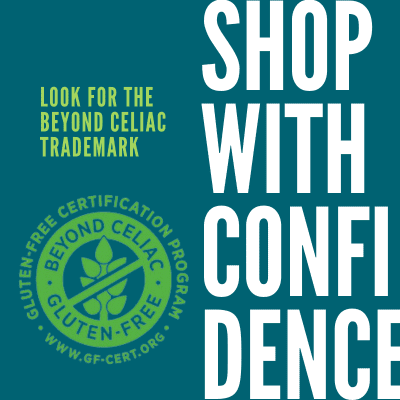Question:
I know that cross-contact is a concern, but how careful should I be at home? I don’t want to replace all of my equipment because of the cost and storage concerns. What are the absolutely necessary essentials to replace and what can I skip?
Answer:
While avoiding cross contact inside the home is just as important as away from home, keeping a completely gluten-free household is not practical for all families. You do not have to expend the cost and effort to replace big, expensive equipment. However, your equipment should be fully cleaned and sterilized to accommodate gluten-free cooking and meal preparation moving forward.
For major pieces of equipment and appliances that can’t be replaced or another one purchased—such as your oven or refrigerator—its best to make a family plan for your approach. Will the oven be completely gluten-free? That is ideal, but may not be practical for your family. If gluten-containing foods will be allowed in your oven, it is always best to prepare and cook gluten-free items first before gluten-containing, and always clean and sterilize the oven immediately after preparing gluten-containing foods. It’s important to know that you can’t “burn off” gluten in the oven. Cleaning and sterilizing is necessary to remove the gluten.
If you must have gluten-containing foods in your refrigerator, make sure they are stored on the bottom shelf so that any crumbs or droppings don’t fall into gluten-free food. Labeling gluten-free items is also important so the entire family knows how and where to be careful.
In most homes, it’s not practical to have more than one of your medium-sized appliances—such as blenders and food processors—as they are expensive and take up a lot of storage space. Again, here you should have a family plan for these items to be thoroughly cleaned and sanitized before and after use and stored in place where there will be no contact with gluten.
It does, however, make sense to have two sets of certain small appliances, equipment and utensils that are likely to come into contact with gluten, such as cutting boards, knives and colanders. If toaster-ovens are commonly used in your home, and purchasing a second one is feasible, I recommend doing that. A second dedicated gluten-free toaster can sometimes offset the need to use the oven, and is much easier to handle and clean. If these smaller items can be stored in separate cabinets/drawers that is ideal, however, not always possible. If you do need to store these items close to one another, it is a good idea to put labels on them so all can decipher between the two sets.
For cleaning and sanitizing equipment, utensils and cleaning surfaces, it is best to follow these steps:
- Dry wipe to remove all crumbs and bits and pieces of food residue before cleaning
- Wash thoroughly with warm, soap water
- Rinse
- Where possible, sanitize by running through the dish washer. Or, use a home sanitizing solution for necessary equipment.
- Either let air dry or wipe with a clean towel that hasn’t come into contact with gluten
Of all these considerations, the most important is creating a system that works for your home and making sure that all family members understand the system. Labeling and proper storage are key components to ensuring the plan works.
Every family is different, so how gluten-free food storage and meal preparation is handled will be different for every single household. I hope these tips are a good starting point for you.
Be well,
Rachel Begun, MS, RDN



